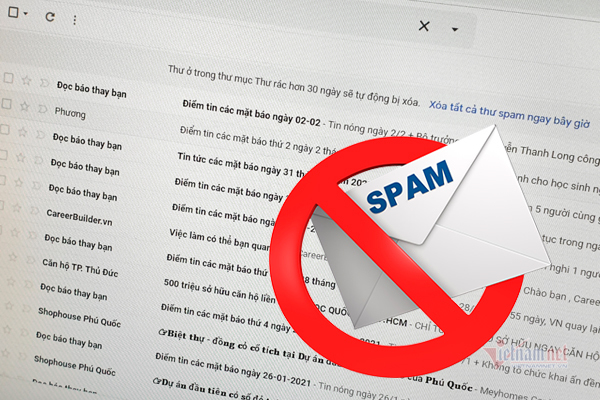
This is a list of IPs/ IP ranges marked as the source of spam e-mail distribution, which are listed periodically. Based on this list, organizations and individuals can prevent the spread of spam email.
As of October 1, 2020, a total of more than 1.15 million IP addresses have been blacklisted by the Department of Information Security for spam email distribution. In this latest update, more than 29,000 IP addresses were added to the blacklist.
Decree 91/2020 issued by the Prime Minister on combating spam messages, spam email and spam calls stipulate that the building and regular updating of the black list of IP addresses that distribute spam emails is the task of the Information Security Administration and telecommunications and Internet service providers.
Spam email is defined as advertising e-mail without the prior consent of users or those violating regulations on sending advertising e-mail.
Spam emails also include content that is prohibited under the provisions of Article 9 of the Law on Electronic Transactions, Article 12 of the Law on Information Technology, Article 12 of the Law on Telecommunications, Article 8 of the Law on Advertising, Article 7 of the Law on Information Security, and Article 8 of the Law on Cyber Security.
According to Decree 91/2020, advertisers are only allowed to send text messages, emails or make phone calls to users with prior consent for receiving advertisements.
Advertisers are also not allowed to send more than 3 emails to one email address within 24 hours, unless having an agreement with the user.
Advertising e-mails must be labeled with information about advertisers, service charges, appropriate topics, and advertising contents must comply with the provisions of the law on advertising.
In case of violating regulations on advertising, spammers may be prevented and their e-addresses used to distribute telecommunications spam may be banned at the request of competent state agencies.
Previously, the Ministry of Information and Communications took strong measures to handle spam messages and calls. In the last 6 months of 2020, network operators prevented a total of 89,649 subscribers spreading spam calls.


